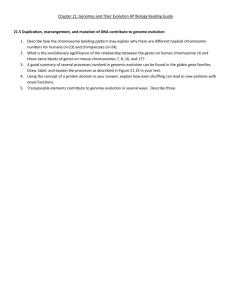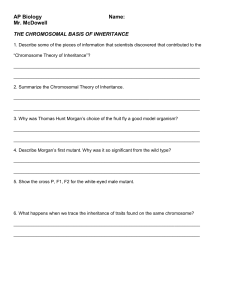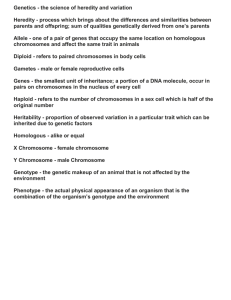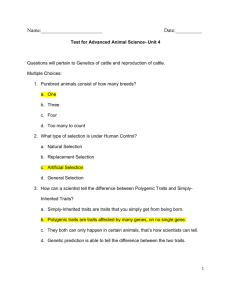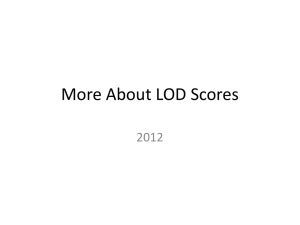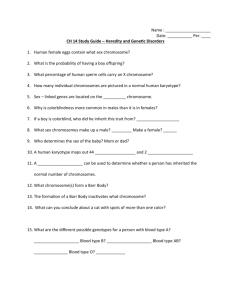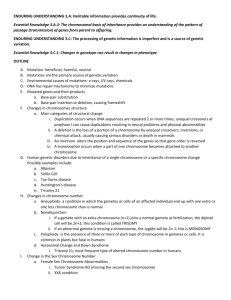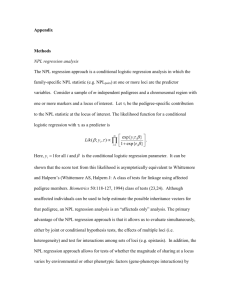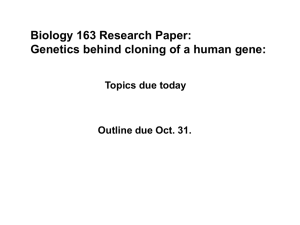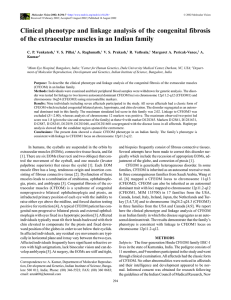linkage mapping of fitness related traits in Soay sheep
advertisement
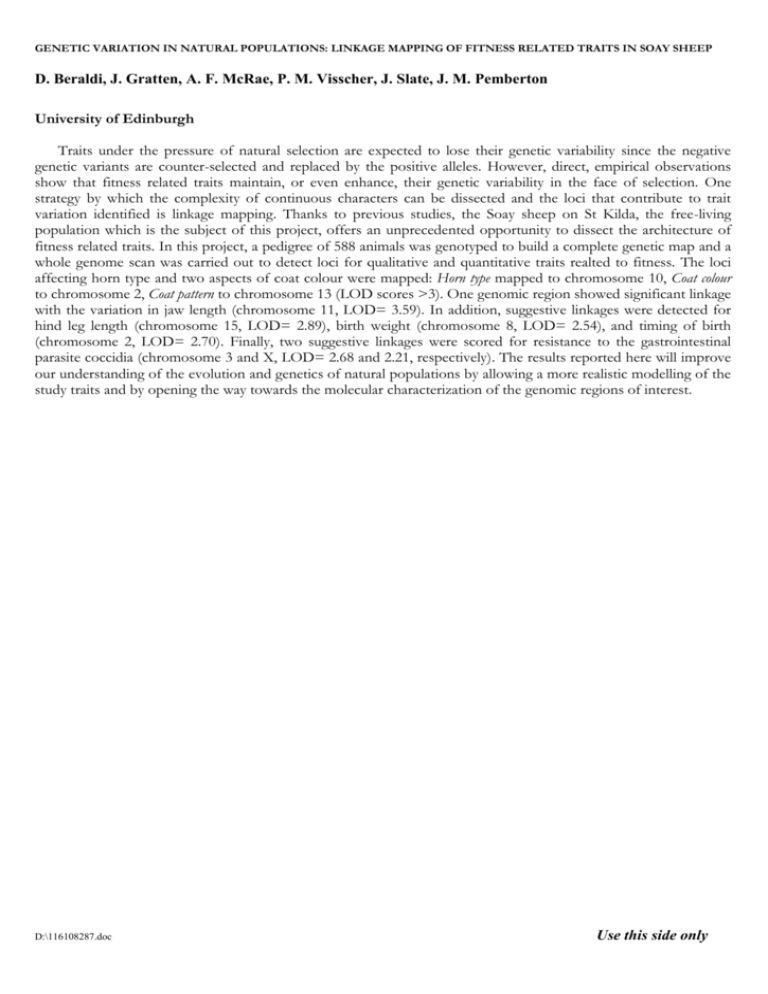
GENETIC VARIATION IN NATURAL POPULATIONS: LINKAGE MAPPING OF FITNESS RELATED TRAITS IN SOAY SHEEP D. Beraldi, J. Gratten, A. F. McRae, P. M. Visscher, J. Slate, J. M. Pemberton University of Edinburgh Traits under the pressure of natural selection are expected to lose their genetic variability since the negative genetic variants are counter-selected and replaced by the positive alleles. However, direct, empirical observations show that fitness related traits maintain, or even enhance, their genetic variability in the face of selection. One strategy by which the complexity of continuous characters can be dissected and the loci that contribute to trait variation identified is linkage mapping. Thanks to previous studies, the Soay sheep on St Kilda, the free-living population which is the subject of this project, offers an unprecedented opportunity to dissect the architecture of fitness related traits. In this project, a pedigree of 588 animals was genotyped to build a complete genetic map and a whole genome scan was carried out to detect loci for qualitative and quantitative traits realted to fitness. The loci affecting horn type and two aspects of coat colour were mapped: Horn type mapped to chromosome 10, Coat colour to chromosome 2, Coat pattern to chromosome 13 (LOD scores >3). One genomic region showed significant linkage with the variation in jaw length (chromosome 11, LOD= 3.59). In addition, suggestive linkages were detected for hind leg length (chromosome 15, LOD= 2.89), birth weight (chromosome 8, LOD= 2.54), and timing of birth (chromosome 2, LOD= 2.70). Finally, two suggestive linkages were scored for resistance to the gastrointestinal parasite coccidia (chromosome 3 and X, LOD= 2.68 and 2.21, respectively). The results reported here will improve our understanding of the evolution and genetics of natural populations by allowing a more realistic modelling of the study traits and by opening the way towards the molecular characterization of the genomic regions of interest. D:\116108287.doc Use this side only
